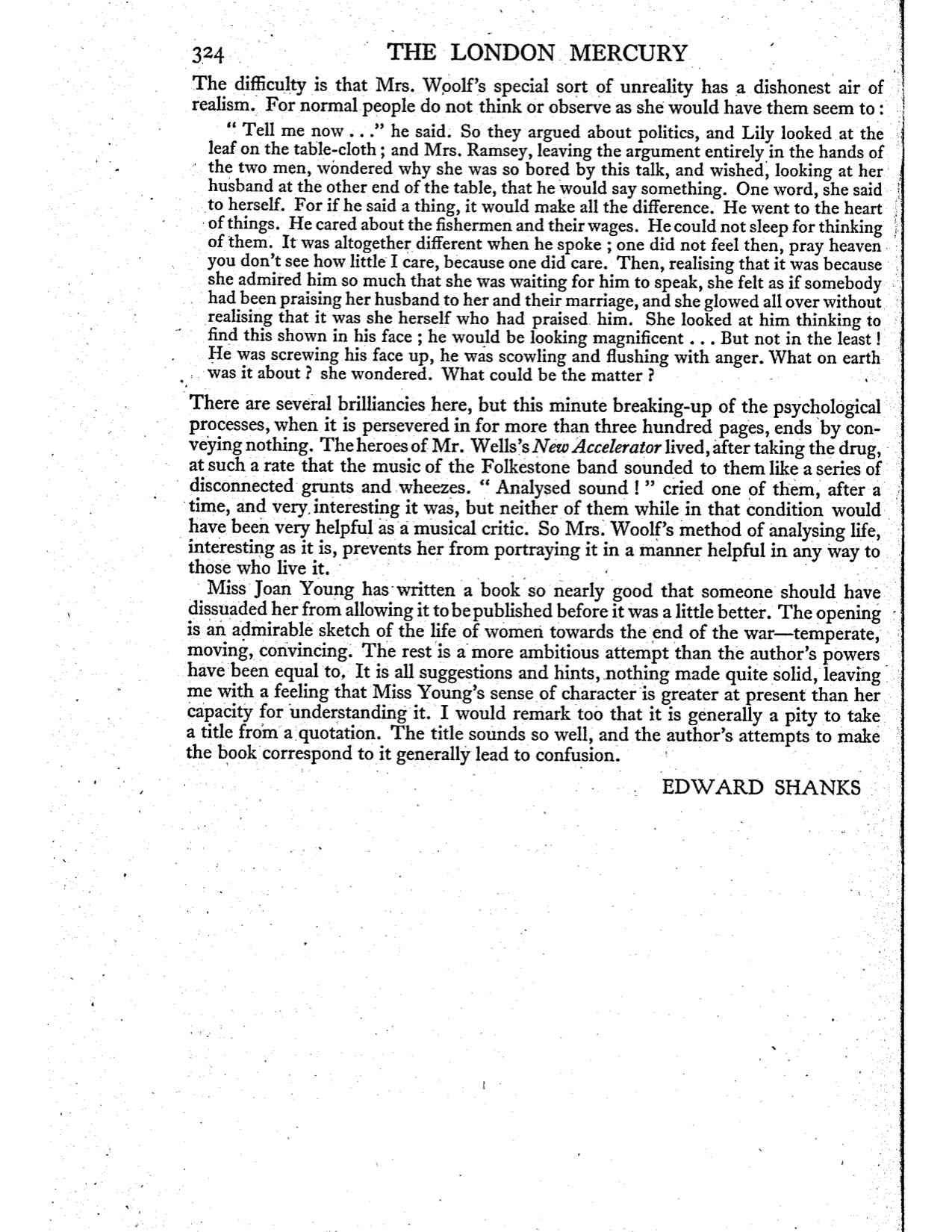
[next page]
The difficulty is that Mrs. Woolf’s special sort of unreality has a dishonest air of
realism. For normal people do not think or observe as she would have them seem to:
“Tell me now. . .” he said. So they argued about politics, and Lily looked at the
leaf on the table-cloth; and Mrs. Ramsey, leaving the argument entirely in the hands of
the two men, wondered why she was so bored by this talk, and wished, looking at her
husband at the other end of the table, that he would say something. One word, she said
to herself. For if he said a thing, it would make all the difference. He went to the heart
of things. He cared about the fishermen and their wages. He could not sleep for thinking
of them. It was altogether different when he spoke; one did not feel then, pray heaven
you don’t see how little I care, because one did care. Then, realising that it was because
she admired him so much that she was waiting for him to speak, she felt as if somebody
had been praising her husband to her and their marriage, and she glowed all over without
realising that it was she herself who had praised him. She looked at him thinking to
find this shown in his face; he would be looking magnificent . . . But not in the least!
He was screwing his face up, he was scowling and flushing with anger. What on earth
was it about? she wondered. What could be the matter?
There are several brilliancies here, but this minute breaking-up of the psychological
processes, when it is persevered in for more than three hundred pages, ends by conveying
nothing. The heroes of Mr. Wells’s New Accelerator lived, after taking the drug,
at such a rate that the music of the Folkestone band sounded to them like a series of
disconnected grunts and wheezes. “Analysed sound!” cried one of them, after a
time, and very interesting it was, but neither of them while in that condition would
have been very helpful as a musical critic. So Mrs. Woolf’s method of analysing life,
interesting as it is, prevents her from portraying it in a manner helpful in any way to
those who live it.
Miss Joan Young has written a book so nearly good that someone should have
dissuaded her from allowing it to be published before it was a little better. The opening
is an admirable sketch of the life of women towards the end of the war—temperate,
moving, convincing. The rest is a more ambitious attempt than the author’s powers
have been equal to. It is all suggestions and hints, nothing made quite solid, leaving
me with a feeling that Miss Young’s sense of character is greater at present than her
capacity for understanding it. I would remark too that it is generally a pity to take
a title from a quotation. The title sounds so well, and the author’s attempts to make
the book correspond to it generally lead to confusion.
EDWARD SHANKS






